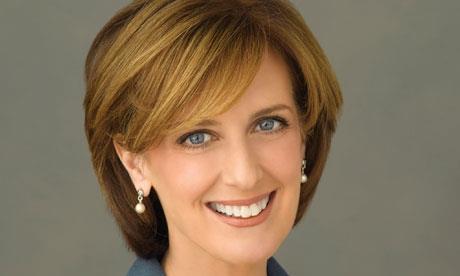The inside view from the Disney ABC exec and Mipcom’s personality of the year.

Anne Sweeney, Disney/ABC Television group president and Disney Media Networks co-chair, has been named Mipcom 2011 Personality of the Year, making her the first woman ever to receive this accolade. Before flying in to Cannes to give a keynote address, she spoke to Broadcast.
Most people still cite Lost when they think of hit ABC shows. Why do you think that is, considering the show launched in 2004 and ended in 2010?
Lost defined ABC in many ways. Creatively it was a very deep, engaging series with great stories and characters. It also came at a time when TV production started to take advantage of progress in technology, so that episodes of Lost were almost like a feature film every week.
In addition, though we didn’t know it was coming at the time, Lost coincided with the rise of social media. The creators talk about the iceberg theory with Lost, meaning 10% of its appeal was above the surface on TV, but 90% was lead by discussions on digital platforms.
How would you define the ABC brand? And do you think it has enough traction with international consumers to be useful globally as a companion to Disney and ESPN?
Paul Lee (president of ABC Entertainment Group) describes it as being “smart with heart”. It’s not like HBO because it’s a big-tent network, not a premium pay-TV network.
The kind of shows that encapsulate it are Lost, Desperate Housewives, Grey’s Anatomy, Castle and Missing (right), a wonderful new series we are screening at Mipcom.
Internationally, the feedback we get from our teams is that ABC is a meaningful brand, which is why we have started developing services like ABC On Demand for platforms like BT Vision.
In the US, Disney and ESPN are huge cable brands. But at a time when the US cable channel market is growing audience and increasing its investment in originals, how well have you done taking ABC into that arena?
Ten years ago, we acquired Fox Family and rebranded it as ABC Family. Paul Lee revitalised it by going after an underserved demographic - 18-24 year-olds. Our insight was they were different from the traditional ABC audience.
They still craved great stories and characters but were comfortable with mobiles, iPods and Xboxes, so viewed the world through a different lens. For me, the channel has really found its feet with drama series like Switched At Birth.
Go back 10-15 years and Disney’s international channels seemed too premium, too disconnected from the audience. It’s different now. Why is that?
There was a time when Disney’s international channels weren’t reflecting the relationship between the audience and brand, but we were aware of this in the US and addressed it. In terms of Disney Channel, it was about creating every day events.
That started with Even Stevens and Lizzie McGuire, but the rocket fuel was High School Musical and Hannah Montana. Another big story was the rebrand of Jetix as Disney XD.
You are regarded as a digital pioneer following your decision (circa 2005) to migrate so much top-quality content to digital platforms. Why did you move so fast?
Our digital strategy has been dictated by consumer demand. It goes back to the finale of Desperate Housewives series one in May 2005.
We were just celebrating the fact that we had done huge numbers when one of my team showed me a high-quality pirate DVD of the show he had downloaded from the internet five minutes after transmission. We knew then that we couldn’t put the genie back in the bottle.
Were you worried this new approach would backfire; cannibalising revenues, creating unexpected rivals or alienating existing commercial partners?
When we launched abc.com our advertisers said: “We understand why you’re doing this, just take us with you.” So we shared research with them to make sure we all understood where things were heading. We were very purposeful.
There were a lot of platforms we didn’t work with because they didn’t meet our criteria: they weren’t going to protect our content; there was no marketing plan; and there was no resonance with our brand.
Are you tech savvy? How does digital affect your job?
Like a lot of people, I’ve had to learn. But one thing that’s different is our digital dailies - online rough cuts of shows in production that I can watch on my iPad. It means we’re not sending out endless DVDs, which takes a lot of cost out of the system.
Why is Mipcom 2011 significant for you?
We have a big presence at Mipcom this year because international has become so important to us. Examples like ABC On Demand and Body Of Proof, where we launched internationally before in the US, are about our company trying to be sensitive to the needs of our clients and consumers.


























No comments yet